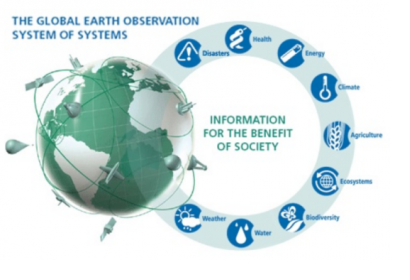The Group on Earth Observations (GEO) and Amazon Web Services (AWS) have teamed up to offer GEO member agencies and research organizations from developing countries access to cloud services. Selected organizations will receive AWS credits to host, process and analyze big data about the Earth to support sustainable development efforts.
The deadline for applications is 31 March 2019. Applications are welcome for non-commercial projects that address the GEO Work Programme and, in particular, support the implementation of the Sendai Framework for Disaster Risk Reduction, the Paris Agreement and the 2030 Agenda for Sustainable Development.
Background information about the programme as well as criteria for applications can be found here: http://www.earthobservations.org/aws.php
Earth observations, through data obtained from satellites and ground-based measurements, provide valuable insights to assess and mitigate disasters, climate change and other environmental and sustainable development challenges. However, to effectively exploit the increasing volume of data, adequate database storage and computing capacity is key. By providing access to cloud computing services, GEO and AWS allow institutions without access to super computers and dedicated data center to easily model and analyze big data about the Earth.
Applicants are encouraged to use open, free and fully accessible sources in their project, which can also be found on the GEOSS Portal. As part of the initiative, the GEO Secretariat will facilitate access to analysis-ready data from the Copernicus and Landsat programmes for development proposals. Projects that make use of open satellite data will be prioritized.
Successful applicants will receive up to $100,000 of Amazon Web Services (AWS) cloud credits as well as support from the GEO community and AWS experts in the implementation of their project.
UNOOSA has been a Participating Organization to GEO since 2014 and has supported its capacity-building and awareness-raising efforts over the years. Through its UN-SPIDER programme, UNOOSA became a data provider in the Group on Earth Observations System of Systems (GEOSS) Portal in 2018. Under the arrangement, selected resources from the UN-SPIDER Knowledge Portal, such as data sources, are made available through the GEOSS platform.

